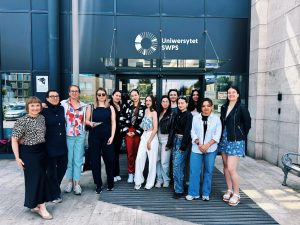
Keywords: participatory methods; changing norms in higher education ; inclusion; social impact; challenges of collaboration; empowerment
The project focuses on the area of young people’s psychosocial problems as well as the inclusion of young people in education and employment.
Trine shares that engagement with this project demonstrates the time and commitment required to engage with vulnerable participants in longitudinal qualitative studies. The need for long-term observation and keeping in touch with the students frequently creates meta-responsibility for research participants in such “active and delicate” research. The researcher reports that the societal impact is reflected in, firstly, empowering the participants by visualizing their narratives and establishing an opportunity for reflection over time, and secondly, in the process of challenging cultural and institutional norms about the educational capabilities of students with mental illnesses. For instance, the results of the study are used in official University boards and have also informed counselling units’ knowledge, practice development and interventions, for example in relation to students’ communities, guidance practices and learning environments in universities and vocational colleges.
Additional Information
participatory methods; changing norms in higher education ; inclusion; social impact; challenges of collaboration; empowerment

